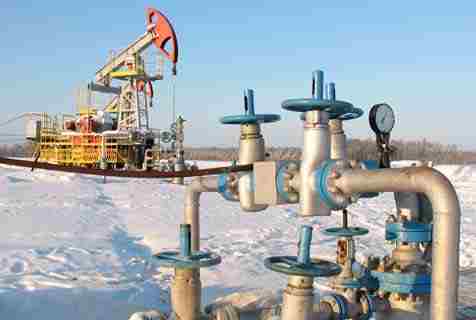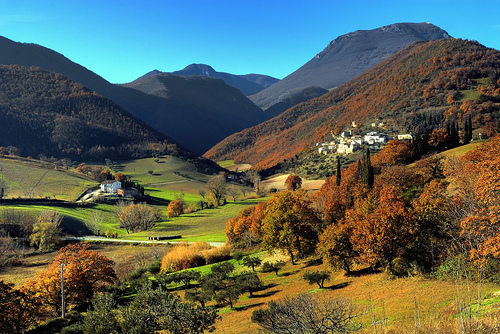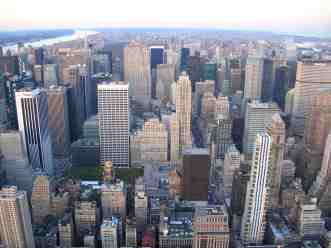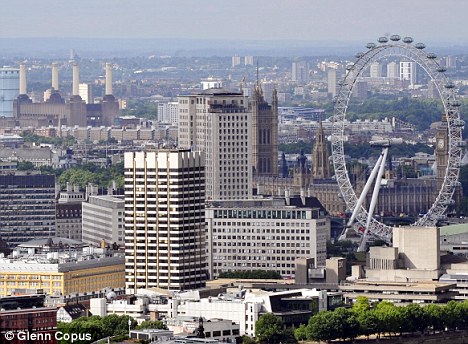419: Growth and Innovation to 2000 - Switching To Low Growth Stagflation
04-06-2012

PropertyInvesting.net team
Innovation 1970-2000: The western world between 1970 and 2000 was a period of immense technological change and innovation that fuelled incredible growth in the USA, UK and Western Europe. This was off the back of:
· Low oil prices (from 1981, oil prices were normally below $14/bbl)
· Computer boom – invention of PCs, software, email, mobile phones, internet, databases
· Low prices commodities such as food, metals, precious metals
· Military strength of USA and Nato
· Use of Asia for low cost manufacturing and outsourcing low end services to improve efficiency
· Globalisation of goods, services and trade
· Domination of the US dollar and Euro as global reserves currencies
· Stock market that rose 15 fold in 30 years up to 2000
· Central Banks had stable strong currencies – interest rates will high and inflation low that encouraged investment and savings
Slow Collapse: However, since 2000, things have tipped in the other direction. On the Millennium New Year’s Eve the stock markets reach an all time high point – and crash shortly afterward. Since then the reverse has happened, namely:
· High oil prices (from 2000 to 212, oil prices rose from $9/bbl to £110/bbl)
· The impact of the computer boom has faded – innovations like the iPad, Facebook are not creating value in improving business efficiency like the PC, Internet and mobile phones did
· Commodities for food, metals, precious metals have all risen strongly
· Military strength of USA and Nato is weakening by the year
· Asian nations are now sucking huge amounts of resources into their economies competing directly with the less efficient use of oil/gas in western developed nations – driving up commodities prices and denting profits in oil importing nations
· Trade wars are beginning to break out – with tariff taxes, and currency depreciation wars that has slowed globalisation and may put it into reverse
· Other currencies are starting to challenge the US dollar and Euro as global reserves currencies
· The stock market has declined 40% in inflation adjusted terms since 2000
· Central Banks have unstable and declining weak currencies as more money is printed - interest rates remain very low and inflation high meaning investment is discouraged and savings are destroyed by inflation with negative real rates
Downward Trend: The average person probably does not consider such economic trends when they ponder how they will get by financially on a daily and annual basis. It’s either not interesting to them, they do not consider it particularly relevant or they would not understand because these concepts are too far removed from their normal life. Many politician probably don’t care to understand – instead they prefer to think short term – how to win votes and stay in power. But these concept are important for private individual investors to consider because only by understanding the trends can one invest money in the tight place to maximise returns – either capital growth (value) or yield (dividends, cashflow, income).
trends when they ponder how they will get by financially on a daily and annual basis. It’s either not interesting to them, they do not consider it particularly relevant or they would not understand because these concepts are too far removed from their normal life. Many politician probably don’t care to understand – instead they prefer to think short term – how to win votes and stay in power. But these concept are important for private individual investors to consider because only by understanding the trends can one invest money in the tight place to maximise returns – either capital growth (value) or yield (dividends, cashflow, income).
Follow The Bubbles: For example, there is little point in investing in beer sales, if you think beer sales will crash and stay low for many years. What the investor has to do is consider what the governments will do next – and follow the money. In simple terms, if the government either holds back or does not need to print more money, the currency rate will rise – the value of this currency will rise. If money printing gets going, the currency will drop – the value of the currency will drop. Every time there is another bout of money printing, bubbles are created. These bubbles then pop. This is an extremely important economic topic. Asset prices tend to form bubbles are euphoria kicks in, then crash and stay depressed as depression or ill feeling kicks in. When everyone wants something a bubble develops. When no-one wants something a crash or depressed market develops.
Fed Creates Bubbles: The US Fed is king when it comes to creating bubbles. Some examples are the incredible Technology (Nasdaq) bubble that developed from 1995 to 2000 that then went pop. This was followed by the US housing bubble stimulated by very low interest rates after the stock market crashed and easy lending practices that started in 2002 and went pop in 2007. 7 million US jobs were created as a  direct result of the housing bubble – then they were all lost in the 2 years after it. There was then a short bubble in oil from 2007 to mid 2008 – when oil prices rocketed from $75/bbl to $148/bbl then crashed to $33/bbl as financial markets crashed.
direct result of the housing bubble – then they were all lost in the 2 years after it. There was then a short bubble in oil from 2007 to mid 2008 – when oil prices rocketed from $75/bbl to $148/bbl then crashed to $33/bbl as financial markets crashed.
Next Bubble: So where is the next bubble? There must be one somewhere surely? Indeed, yes, in our view – the most obvious new bubble is the US bond market bubble that started decades ago and reached a peak a few months ago as everyone went pessimistic on the Euro as a currency. The US is currently considered a “safe haven” and “reserve currency of the world”, but this in our view is euphoria and optimism in the extreme – it looks just like the Tech Bubble of late 1999,
Housing Bubble of 2007 and Oil Bubble of July 2008. It looks like it should go pop any time soon. The reasons:
-
The US annual deficit is >10% of GDP
-
The US has a very low 3.1% savings rate at present
-
43% of US retirees have less than $10k in retirement savings
-
Federal worker wages are far too high – the average including benefits is
 $130,000 – this is twice the private sector wages which average only $65,000
$130,000 – this is twice the private sector wages which average only $65,000 -
Wage growth in the public sector was 2% in 2010 and was even higher at 3.9% in 2009 – meanwhile private sector wages were stagnant
-
The US debt is $15.2 Trillion and rising at $1.5 Trillion a year despite economic growth – that does not include $6.3 Trillion for Fannie Mae and Freddie Mac liabilities
-
Unfunded liabilities are thought to be in excess of $75 Trillion including Medicare, Medicaid and Social Security - this is 500% of annual GDP
-
The derivatives market is thought to be around $75-100 Trillion
-
The US government has to borrow 40% of every dollar it spends
-
Tax revenues are $1.75 Trillion but government spending is $2.75 Trillion per annum
-
There are too many government jobs being created and not enough private sector jobs – an example is the 1.2 million temporary census workers created to produce a people survey that does not create any value
-
Each US person costs $1500 per annum in Military expenditure
-
Each US person costs $1500 per annum in Oil Import expenditure
-
The USA has 5% of the world’s population but uses 22% of the world’s energy – importing half of it
-
The Department of Education costs $63 billion per annum – costs have risen 40% since 2002 – college costs have also risen 40% since 2002, more than many country’s GDPs
-
The Department of Energy was created to reduce the US dependence on imported oil – however, –since it was created oil imports have risen from 50% to the current 70% and costs $300 billion per annum
-
Europe has problems with Greece which is 3% of Europe’s GDP. This is the same since % as Virginia’s GDP within the USA. Meanwhile California is almost bankrupt and has 13.4% of the US GDP
-
It would take retirement savings of $100,000,000 to earn $50k in retirement income at Wells Fargo bank due to low interest rates
US Bankrupt: To all intense and purposes the US is bankrupt. It will never be able to pay off its debts. When international markets and governments finally wake up to the fact, there will be a run on the US bond market that will result in re-away inflation, high interest rates and a massive market crash that will make 2008 look like a tea-party. This is probably the key economic trend that will shape investment returns for western investors in the next five years. You what will happen is:
· To pay for debt repayments, the Fed will have to print more money and buy its own debt
· Interest rates will rocket as international investors desert bond auctions
· 2% on a US loan is such a ridiculously low rate for a high risk debt that we have to pinch ourselves – there is bound to be a run soon – a tipping point – when people will finally desert the dollar and panic
· People will sell bonds into cash, releasing a tidal wave of money that will then be spent on real assets like oil, gold and silver and mining shares
· There will be a massive transfer or wealth from those holding paper currencies like the dollar and US bonds and T-bills, to people hold gold, silver, oil, metals, land and commodities.
Debt Mountain No Buyers: It transpires that 61% of the latest Treasury sale of debt (loans) was purchased by the Federal Reserve - from printed money. Foreign investors are shunning these T-bill purchases - to put it into prospective, in 2009 China and Japan purchased US debt of the equivalent of 6% of the US GDP and this has recently crashed to a paltray 0.9%. This is thought largely because China and Japan don't think they will ever get their money back, but in the case of Japan, it's even more serious than that. They shut all their nuclear poower plants in 2011, increased their oil imports and their trading surplus has disappeared, so they cannot afford to buy this debt anymore. Now that China is slowing down - and in early 2012 China actually had a monthly deficit - it only takes a bit more of a slowing Chinese economy to cause havoc in the Treasuries markets. We think the Fed will be buying far more than 61% of the US debt moving forwards - at which time the dollar will decline sharply and a crash could happen at any juncture. It is a very serious situation.
Spain: News on 5 April that the Spanish bond auction went very badly spooked  European and global markets once more. The new Spanish conservative government seems to have come clean with the extent of the debt and deficit issues left by the previous democratic government and the markets have not taken kindly to this. The deficit reduction measures required imply recession and this impacts a country's ability to pay back debt of course. Rates jumped from 5% to 6% and Spain only sold about 60% of the debt they wanted to. This auction start to impact Italian rates. At a rate of ~7%, both Spain and Italy would not be able to afford to make debt repayments - they would require EU bail-outs. Spain is too big to properly bail out, and Italy with it would case a giant crisis that would make Greece look like a minor glitch, twenty times smaller. Expect this new contagion to start spreading again as the European economic growth starts faltering as we move into the summer, as it normally does. With it, gold and silver prices will rise through the summer. The politicians will be cancelling their summer holidays again - and getting heavily involved like these big government seem to want to this decade.
European and global markets once more. The new Spanish conservative government seems to have come clean with the extent of the debt and deficit issues left by the previous democratic government and the markets have not taken kindly to this. The deficit reduction measures required imply recession and this impacts a country's ability to pay back debt of course. Rates jumped from 5% to 6% and Spain only sold about 60% of the debt they wanted to. This auction start to impact Italian rates. At a rate of ~7%, both Spain and Italy would not be able to afford to make debt repayments - they would require EU bail-outs. Spain is too big to properly bail out, and Italy with it would case a giant crisis that would make Greece look like a minor glitch, twenty times smaller. Expect this new contagion to start spreading again as the European economic growth starts faltering as we move into the summer, as it normally does. With it, gold and silver prices will rise through the summer. The politicians will be cancelling their summer holidays again - and getting heavily involved like these big government seem to want to this decade.
Oil Consumption Decline: The US Administration proclaim that the US oil production has risen and oil  imports have dropped – the country’s reliance on foreign imports is dropping. This is all true, but what they also fail to state is:
imports have dropped – the country’s reliance on foreign imports is dropping. This is all true, but what they also fail to state is:
· Oil consumption has drastically dropped because of higher unemployment and high gasoline prices
· US oil companies are drilling like crazy because oil prices are so high – money to be made – driving up US oil and gas production
· Many of the production increases are from discoveries found during the previous administration ending 2008 – after that government stimulated oil drilling activity – rising oil prices have maintained this momentum despite environmental pressures, high drilling costs, more regulation and the offshore drilling ban May 2011 to early 2012.
· The drop in oil consumption is not because of an increase in renewable energy or gas use – it is primarily because of weak US demand because of the anaemic jobless economic recovery
415: "Peak Oil Plateau" problem - hitting the constraints to western growth
No Jobs Growth Since 2000: To put it into prospective, during the period we spoke about from 1980 to 2000, 40 million net new US jobs were created. Between 2000 and 2012, no net new jobs have been created despite a 20 million increase in the US population. There really is a return to h igh unemployment and inflation and it’s here to stay regrettably. Anyone that experienced the recession 1980-1983 will know what bad unemployment is like. But this time, the pain has not yet been truly felt because the US, UK and European governments and central banks have been printing money like there is no tomorrow, bailing almost everything out and propping up their economies – so the ruling party can get re-elected. This whole dangerous process will come to an end shortly. But we are likely to see a “stay of execution” until end 2012 earliest simply because that is when the US Election is – with France, Russia and Germany also holding elections this year. The Fed will want to prop everything up nicely until after the election. In the interim if the US stock market drops significantly, the Fed will step in to print more money – provide this ultra-cheap money to bankers so they can use it to buy stocks and drive the US stock market back up again. It really is that simple. But as we always seem to see in April, May, June and into July – expect stock markets to tumble as the most wealthy investors head for their holiday homes for the summer. They reduce their exposure and positions because they like to closely control at their desks. Furthermore at this time annually, the manufacturing indexes start look to depressed, demand slows are everyone starts fretting a
igh unemployment and inflation and it’s here to stay regrettably. Anyone that experienced the recession 1980-1983 will know what bad unemployment is like. But this time, the pain has not yet been truly felt because the US, UK and European governments and central banks have been printing money like there is no tomorrow, bailing almost everything out and propping up their economies – so the ruling party can get re-elected. This whole dangerous process will come to an end shortly. But we are likely to see a “stay of execution” until end 2012 earliest simply because that is when the US Election is – with France, Russia and Germany also holding elections this year. The Fed will want to prop everything up nicely until after the election. In the interim if the US stock market drops significantly, the Fed will step in to print more money – provide this ultra-cheap money to bankers so they can use it to buy stocks and drive the US stock market back up again. It really is that simple. But as we always seem to see in April, May, June and into July – expect stock markets to tumble as the most wealthy investors head for their holiday homes for the summer. They reduce their exposure and positions because they like to closely control at their desks. Furthermore at this time annually, the manufacturing indexes start look to depressed, demand slows are everyone starts fretting a bout whether the world is entered a new recession or not. The summer market will probably look pretty depressed, but by November 2012 – the Fed will have made sure it is propped back up as much as possible just before the US Election.
bout whether the world is entered a new recession or not. The summer market will probably look pretty depressed, but by November 2012 – the Fed will have made sure it is propped back up as much as possible just before the US Election.
Oil Market Manipulation: Also expect the US, UK, France and Japan to agree to release some oil from the strategic reserves by 1st July when the Iranian sanctions kick in, in earnest. This should manipulate the oil price down somewhat – just as the oil markets are working in the other direction. This should put a lid on oil prices below say $130/bbl. And a lid on gasoline prices. Yes, the governments are manipulating oil prices and markets – it really isn’t a real market anymore. As OPEC manipulate oil prices up, the EIA are trying to manipulate oil prices down. They are both trying to control what some people used to view as a free market with the OPEC cartel using side control – that seems far removed from a free entity now.
Inflation: Looking forward, in the US and UK, in summary everything will become more expensive:
· Oil prices will rise
· Rentals will rise
· Inflation and food will rise
· Property prices will rise, though probably not as fast as overall inflation
· Unemployment will stay stubbornly high
· Taxes will stay high
· Growth rates will be anaemic – recessions will come and go
· Gold and silver prices will rise sharply – particularly in 2013 onwards
· Public sector money will continue to be squandered on non value creating spending projects in attempts to create job
· Taxes will remain high
· The US will likely put trading restrictions in place to try and encourage investment in the US
· Some major market crash will happen – off the back of the bond market bubble going pop sometime in the next few years
Watch Out From The Inflation Spike: In our view, what western investors need to do is make sure they are property invested to take advantage of high inflation. Many people think deflation will kick-in, but our feeling is, the period of deflation is now behind us, the amount of money printing has become so gigantic that deflation is no longer possible. The $75 Trillion wall of US bond market money will hit the streets and inflation will rise sharply – rapidly – out of control – sometime in the next few years, most likely in 2013.
Property Debt Deflates Away: Consider that if you have a property  portfolio worth £5 million with borrowing of £3 million (60% gearing), if inflation runs at 15% a year for 5 years and property prices lag inflation by a half, say rise 7.5% a year (or drop -7.5% a year in real terms each year for 5 years), you property will be worth £7.2 million in nominal terms with a debt of £3 million. Or your property will be worth £3.3 million in real terms and your debt will be worth £1.33 in real terms. Hence your real terms gearing will have dropped from 60% to 40% in 5 years. So even a real terms decline in property prices would lead to a big drop in gearing. This is a key reason why wealth people invest in high rental yield property as a hedge against inflation. The property is a real tangible asset that cannot be seized by the government. It has a use – it can be lived in. And it throws out cash-flow. Renters pay the mortgage on the debt as inflation eats the debt away and hopefully boosts the asset price along with it. Another benefit of property is that one can upgrade and increase the value of the property. It’s value cannot really disappear – its bricks and mortar that has a re-build cost and sits on valuable land.
portfolio worth £5 million with borrowing of £3 million (60% gearing), if inflation runs at 15% a year for 5 years and property prices lag inflation by a half, say rise 7.5% a year (or drop -7.5% a year in real terms each year for 5 years), you property will be worth £7.2 million in nominal terms with a debt of £3 million. Or your property will be worth £3.3 million in real terms and your debt will be worth £1.33 in real terms. Hence your real terms gearing will have dropped from 60% to 40% in 5 years. So even a real terms decline in property prices would lead to a big drop in gearing. This is a key reason why wealth people invest in high rental yield property as a hedge against inflation. The property is a real tangible asset that cannot be seized by the government. It has a use – it can be lived in. And it throws out cash-flow. Renters pay the mortgage on the debt as inflation eats the debt away and hopefully boosts the asset price along with it. Another benefit of property is that one can upgrade and increase the value of the property. It’s value cannot really disappear – its bricks and mortar that has a re-build cost and sits on valuable land.
Bull Market Commodities: As you will know from our previous Special Reports, we are about 65% of the way through a bull market in commodities and 65% of the way throug h a bear market in stocks and shares. This started in 2000 with the Tech crash – the western stock markets never really recovered. In inflation adjusted terms they are about 40% down in 12 years from their highs. The only key reason why the stock market has risen is because of the printed money – inflation – inflating the bubble. But it’s an increase in prices not an increase in real value.
h a bear market in stocks and shares. This started in 2000 with the Tech crash – the western stock markets never really recovered. In inflation adjusted terms they are about 40% down in 12 years from their highs. The only key reason why the stock market has risen is because of the printed money – inflation – inflating the bubble. But it’s an increase in prices not an increase in real value.
Gold and Silver Not A Bubble: So far in our view gold and silver is definately not a bubble - both precious metals are way undervalued compared to fundamentals. If you consider the amount of fiat money that has been printed, gold should be $6300/ounce at this time, not $1630/ounce. Silver should have a gold:silver value or around 15:1 and hence should be around $400/ounce - it is lagging way behind the curve. The pont we would like to make is, if you hear people say gold is in a bubble, ask yourself - do you know anyone that owns gold or silver? If the answer is no, then how can it be in a bubble? No mania, no euphoria, no press, no bubble. You can read our other Special Reports on this subject (two examples below). Eventually they will both develop not a parabolic bubble blow-off phase, but this has not even begun yet.
396: Silver the greatest investment for 100 years - inflation and the dollar demise
387: Massive US Inflation On Horizon - Gold and Oil As Hedge
Be Smart: The smartest investors will see this cycle out by:
· Staying well out of the bond markets (government debt)
· Staying well out of fiat currencies as these are devalued
· Buying gold
· Buying silver
· Buying oil
· Buying stocks and shares in high growth oil companies and mining companies
· Retaining a property portfolio – house prices should rise as inflation takes off and with it real debts will decline as rental prices rise
· Considering buying land, food, commodities, forestry, agriculture, water, fertiliser
Agricultural Boom: The period from 1970 to 2000 was an immensely productive period for agriculture. New farming methods, seeds, fertilizer, larger fields and machinery massively inc reased yields and efficiency driving food prices down – more than ample to keep up with the growing world population. But this again has changed. Fresh water is getting scarce. Technological developments from seeds and fertilizers are mainly built into yields now. Tractors are big and are not getting much bigger. Fields are giant and not getting bigger. Input prices like diesel, seed and fertilizer are rising sharply. The world’s population is accelerating – particularly in Africa and the Middle East – across huge tracts of desert. Meanwhile the average age of a farmer in the USA is 58, same in the UK and is 64 in Japan. All these knowledgeable hard working farmers will no longer be working soon. No-one seems to want to run farms – it’s been considered a low end unattractive high stress occupation. Farmers have the highest suicide rate of any occupation. Most people would prefer to work in media-TV or push paper around as financiers and bankers. But this will soon change. The farmers will be the new bankers. Yes, land will be the bank and fiat paper currency will be just that – not money, just useless bits of paper that can disappear in value quickly – unlike land, farms, water and food.
reased yields and efficiency driving food prices down – more than ample to keep up with the growing world population. But this again has changed. Fresh water is getting scarce. Technological developments from seeds and fertilizers are mainly built into yields now. Tractors are big and are not getting much bigger. Fields are giant and not getting bigger. Input prices like diesel, seed and fertilizer are rising sharply. The world’s population is accelerating – particularly in Africa and the Middle East – across huge tracts of desert. Meanwhile the average age of a farmer in the USA is 58, same in the UK and is 64 in Japan. All these knowledgeable hard working farmers will no longer be working soon. No-one seems to want to run farms – it’s been considered a low end unattractive high stress occupation. Farmers have the highest suicide rate of any occupation. Most people would prefer to work in media-TV or push paper around as financiers and bankers. But this will soon change. The farmers will be the new bankers. Yes, land will be the bank and fiat paper currency will be just that – not money, just useless bits of paper that can disappear in value quickly – unlike land, farms, water and food.
Farmers King: If you have kids, you might consider encouraging them to go t o agricultural school and be farmers. These farmers will be super-rich one day as food prices sky-rocket and supply cannot keep up with demand. The all time low for food prices was probably around 2000 when no-one wanted food, commodities and farmland. We are now entering a new period of agricultural growth. Just consider that the Chinese eat five times less calories than the average US citizen because they eat so little red meat (recall cattle eat calories to fatten up – this is the reason why when this is taken into account - the Chinese use five times less calories than the Americans).
o agricultural school and be farmers. These farmers will be super-rich one day as food prices sky-rocket and supply cannot keep up with demand. The all time low for food prices was probably around 2000 when no-one wanted food, commodities and farmland. We are now entering a new period of agricultural growth. Just consider that the Chinese eat five times less calories than the average US citizen because they eat so little red meat (recall cattle eat calories to fatten up – this is the reason why when this is taken into account - the Chinese use five times less calories than the Americans).
Guns, Riots, USA: If the economy really crashes badly, riots are likely to break out in depressed and the poorest cities or parts of cities and urban areas. This is worth considering if you own property – as a downside risk – particularly in the USA. The big problem in the US is that everyone owns a gun. So if lawlessness breaks out, shooting could destroy cities. Some parts of Mexico have been affected by gun crime and the US is very exposed to this. One reason why US citizens are buying record amounts of guns. Some are very gloomy and have moved to “Doomsteads” – rural farms well away from populated areas where they can easily defend or barricade themselves away against civil disorder. Now this all might sound very far-fetched, but if banks close, people cannot get goods, services and food - then looting and rioting will break out – like it did in Los Angeles in the 1980s. Many of the rich moved out of cities years ago to safer areas – they remain exposed to peak oil as gasoline prices rise, but most probably accept this as part of living in a safe area. It is not really possible now to dismantle or change this car-centric US urban culture, and anyone with any money will want to stay well away from the inner city fringe areas with the most gun crime in most US cities.
– like it did in Los Angeles in the 1980s. Many of the rich moved out of cities years ago to safer areas – they remain exposed to peak oil as gasoline prices rise, but most probably accept this as part of living in a safe area. It is not really possible now to dismantle or change this car-centric US urban culture, and anyone with any money will want to stay well away from the inner city fringe areas with the most gun crime in most US cities.
UK Safety: In the UK, it’s less of a problem mainly because there are so few guns in circulation. Yes, riots can break out but the chance of serious gun battles seems far less likely simply because of the lack of weapons. This is probably one reason why (despite the London riots for a few days in the summer of 2011), wealthy international people continue to buy-up residential property in West London. They feel safe at night walking the streets – similar to Paris. Excellent public transport. Safe taxis. It really is very safe – low risk when compared to most cities, particularly if you avoid pub closing time.
Best Strategy: This brings us onto our final point. We can imagine in the next ten years, some of the smartest people will have invested in oil, gold, silver, mining stocks, property and land. They might be living in rural areas, but visit cities for investment reasons. They could be farmers. They will be avoiding bad government debt. Avoiding having their savings destroyed in failing banks . They will own real assets and avoid paper and financial tools and instruments that they cannot understand. If it is real, physical, you can touch and feel it, then it’s probably worth something – these people will own it. But if its paper, goodwill, nebulous, in the ether and not supplying the very best service, they will avoid it.
. They will own real assets and avoid paper and financial tools and instruments that they cannot understand. If it is real, physical, you can touch and feel it, then it’s probably worth something – these people will own it. But if its paper, goodwill, nebulous, in the ether and not supplying the very best service, they will avoid it.
Let’s Get Physical: Ask yourself, why do you think the art market is booming? The reason is – the value of money is declining and art is an asset – a store of value and something physical. It’s like oil, gold and silver. Also wine. Yes, the rich will continue to get rich by owning the physical stuff. And the suckers will get burnt big time by owning the paper stuff. As everyone prints money, fiat currencies create inflation and destroy the currencies that are no-longer backed by gold or anything tangible.
We hope this has made sense to you. And given a simple investors explanation as to why we believe private individuals should get real and buy physical – and avoid the unreal and non physical. If you have any comments, please contact us on enquiries@propertyinvesting.net


